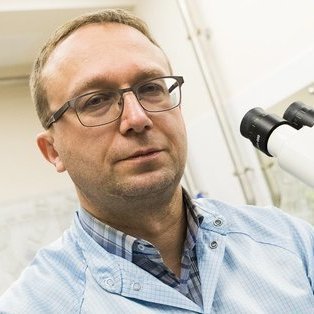Why ‘coronavirus tests’ in pharmacy are dangerous and why they shouldn’t be trusted
Russian pharmacy chains began to sell tests for coronavirus together with marketplaces in early summer. The extremely sought-after product during the pandemic could be found in pharmacies in Moscow, Saint Petersburg and some other regions, while in early October they appeared in Kazan too. Though pharmacists indicated these commodities as “tests for coronavirus” on websites of pharmacies and medication enquiries, in fact, it was kits for an express test for COVID-19 antibodies. Realnoe Vremya found out on what conditions the testing systems were sold in the capital of Tatarstan and their price as well as if one should trust the results obtained or it was better to go to a laboratory. Read the details in our report.
Schrödinger's test
The information that one of the Kazan pharmacies began to sell “coronavirus tests” appeared earlier this month on the website of the Republican Centre for Pharmaceutical Information. The enquiry about “coronavirus” indicated that Healthy Family on 138/1, Orenburgsky Trakt street had the only Express Test for SARS-COV-2 No. 20 made in China for 20,000 rubles. There was no instruction, no name, no data about the manufacturer available.
To find out what exactly was going to be sold to Kazan citizens frightened with the pandemic, moreover, for quite a lot of money, Realnoe Vremya’s correspondent called Healthy Family as a buyer. We were interested in the commercial name of the product, information about the manufacturer and the presence of a certificate. To our surprise, the pharmacist didn’t manage to answer any of our questions, however, he said in what countries the tests were made, their quantity and price.
“The Korean No. 20 (that’s to say, 20 tests in a pack) costs 42,550 rubles, No. 25 costs 53,187 rubles. The Chinese No. 40 is 35,420 rubles, No. 25 — 22,200 rubles. People are buying mainly Chinese ones because they are cheaper. But I can’t say which are more effective,” we were consulted in the pharmacy and explained what kind of testing we were talking about: “It is a test for antibodies, a blood sample is taken from a finger, the waiting time is from 8 to 15 minutes, there is one solution per pack.”
The pharmacist also specified that we couldn’t come and buy the tests immediately after our talk — it was necessary to place a pre-order and transfer a half of the sum to the head of the pharmacy’s card as a guarantee.
Several days later, the information about the availability of “coronavirus tests” in Healthy Family disappeared from the website of the Republican Centre for Pharmaceutical Information. However, a phone call to the pharmacy showed that the tests, in fact, were still available for buyers. Moreover, the pharmacist talked about a completely different algorithm of purchase.
Firstly, our correspondent was warned in advance that they didn’t sell tests to individuals — only to legal entities. Secondly, the enterprise must have a health worker as a member staff or sign an agreement with a private clinic. Thirdly, no “transfer to a card via a phone number” — only an official agreement signing. We just can hope that the product will really be sold to clinics to do tests for antibodies in laboratories.
From pharmacies’ websites to marketplaces
What are these medical goods and why can’t they be considered as “coronavirus tests”, how do pharmacy chains present them to clients? We have studied the market and turned to specialists.
Express tests for coronavirus antibodies can be found on websites of Russian pharmacies and medication search services. There is plenty of offers. For instance, MedicamentSearch federal reference service offers to buy Testing Kit for Coronavirus Antibodies (sars-cov-2) No. 25 by Korean Humasis Co., Ltd.
AptekaMos, in turn, published information about the sale of Kit of Reagents for SARS-CoV-2 Antibody Test to detect IgM/IgG coronavirus antibodies (20 tests) made by Chinese Lepu Medical Technology (Beijing) Co. Ltd. An analogous kit can be found on the website of EApteka chain of pharmacies. Moreover, they all indicate the good isn’t in stock at the moment.
Antibody tests can also be found at different marketplaces, moreover, the assortment is “richer” there — there are even Russian kits apart from Chinese and Korean ones. For instance, Komus sells tests made by Skolkovo — 19,000 rubles per 20 tests. Surprisingly, the good is in stock.
“The accuracy of express tests is lower than laboratory tests”

Vice Premier of Tatarstan Leyla Fazleyeva voices an analogous position. In a talk with Realnoe Vremya, she claimed that laboratory diagnostics was necessary to prove or disprove COVID-19, as “express tests are screening, and their results shouldn’t be used as the only foundation to confirm the status of infection”.
As Albert Rizvanov explained, express tests determine IgM antibodies (that are generated at the very beginning and indicate an active phase of the infection or the person’s recent disease) or IgG (“mature” antibodies that appear by the end of the disease). The algorithm of the testing is the following: a drop of blood is taken, spread onto the window on the strip of the test, while the solution is applied over it. The result is ready in 8-10 minutes already. One strip must always appear — it means the test worked, the two other tests indicate M and G antibodies.
“It doesn’t mean they are all bad, one can simply get anything”

The director of the Centre for Precision and Regenerative Medicine of Kazan Federal University was more critical about the price and the quality of express tests for coronavirus.
“As for prices, they are fixed as one wishes. If we’re talking about the quality, Europe returned several Chinese lots due to a low quality at the beginning of the pandemic. It doesn’t mean they are all bad, one can simply get anything. It is important to understand if these tests have certificates, as this is also certain verification,” Albert Rizvanov concluded.